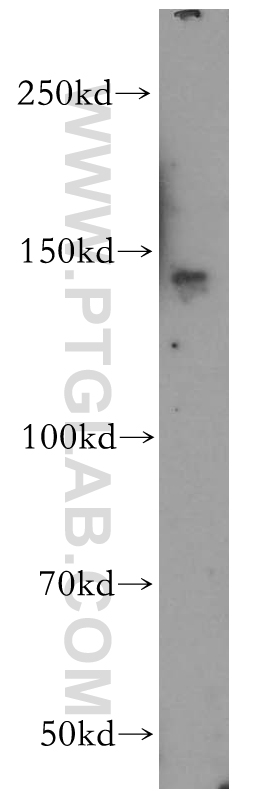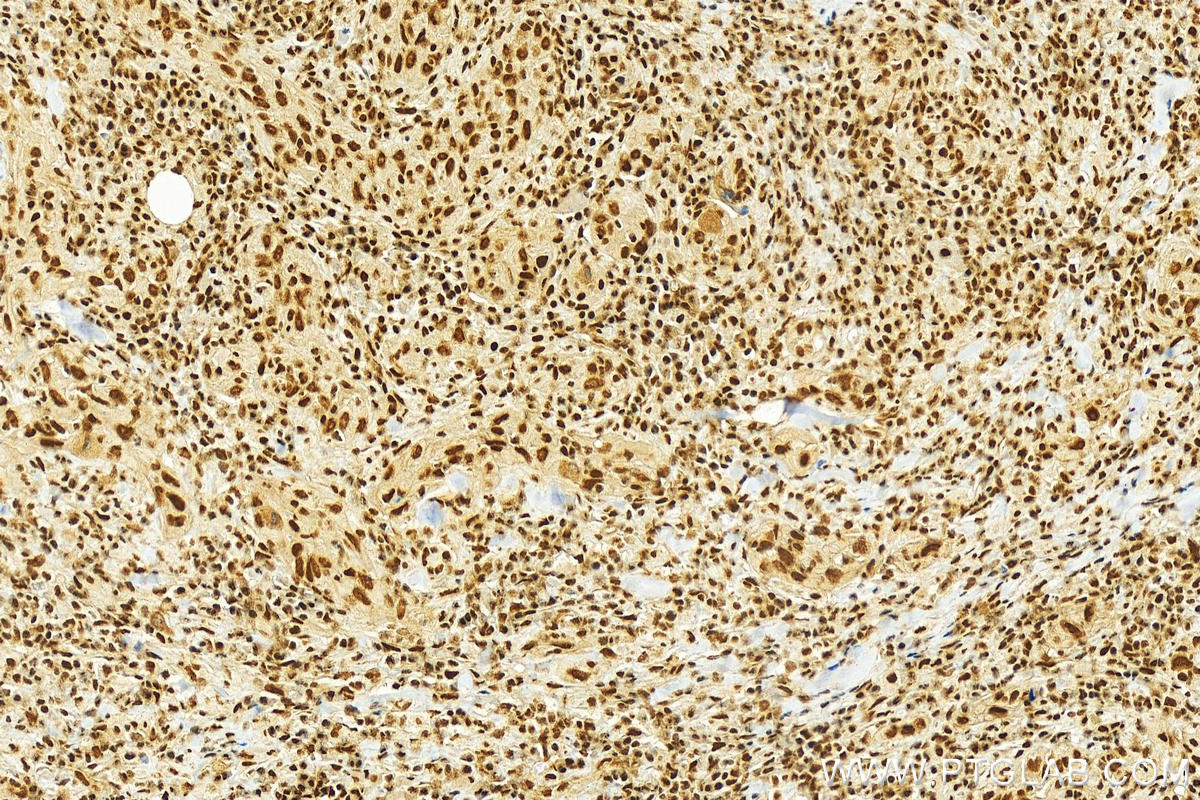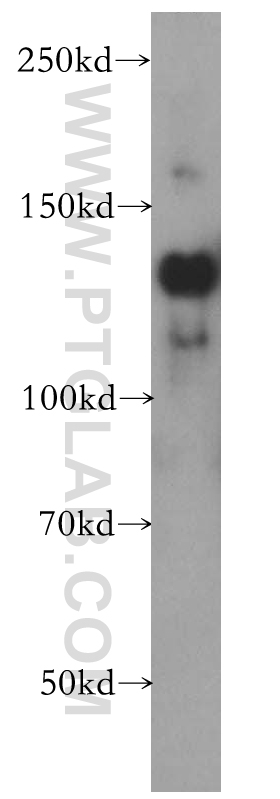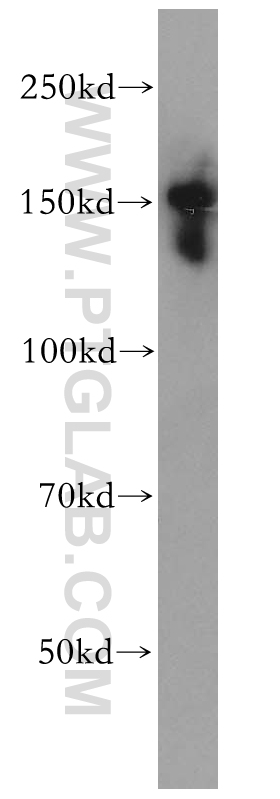SLTM Polyclonal antibody
SLTM Polyclonal Antibody for WB, IHC, IF/ICC, ELISA
Host / Isotype
Rabbit / IgG
Reactivity
human, mouse, rat
Applications
WB, IHC, IF/ICC, ELISA
Conjugate
Unconjugated
验证数据展示
经过测试的应用
| Positive WB detected in | mouse brain tissue, HeLa cells |
| Positive IHC detected in | human skin cancer tissue Note: suggested antigen retrieval with TE buffer pH 9.0; (*) Alternatively, antigen retrieval may be performed with citrate buffer pH 6.0 |
| Positive IF/ICC detected in | HepG2 cells |
推荐稀释比
| Application | Dilution |
|---|---|
| Western Blot (WB) | WB : 1:500-1:2000 |
| Immunohistochemistry (IHC) | IHC : 1:50-1:500 |
| Immunofluorescence (IF)/ICC | IF/ICC : 1:10-1:100 |
| It is recommended that this reagent should be titrated in each testing system to obtain optimal results. | |
| Sample-dependent, Check data in validation data gallery. | |
产品信息
17889-1-AP targets SLTM in WB, IHC, IF/ICC, ELISA applications and shows reactivity with human, mouse, rat samples.
| Tested Applications | WB, IHC, IF/ICC, ELISA Application Description |
| Tested Reactivity | human, mouse, rat |
| Immunogen | SLTM fusion protein Ag12060 种属同源性预测 |
| Host / Isotype | Rabbit / IgG |
| Class | Polyclonal |
| Type | Antibody |
| Full Name | SAFB-like, transcription modulator |
| Synonyms | SAFB-like transcription modulator, Modulator of estrogen-induced transcription, MET |
| Calculated Molecular Weight | 478aa,57 kDa; 1034aa,117 kDa |
| Observed Molecular Weight | 135-140 kDa |
| GenBank Accession Number | BC046119 |
| Gene Symbol | SLTM |
| Gene ID (NCBI) | 79811 |
| RRID | AB_2192729 |
| Conjugate | Unconjugated |
| Form | Liquid |
| Purification Method | Antigen affinity purification |
| UNIPROT ID | Q9NWH9 |
| Storage Buffer | PBS with 0.02% sodium azide and 50% glycerol pH 7.3. |
| Storage Conditions | Store at -20°C. Stable for one year after shipment. Aliquoting is unnecessary for -20oC storage. |
背景介绍
实验方案
| Product Specific Protocols | |
|---|---|
| WB protocol for SLTM antibody 17889-1-AP | Download protocol |
| IHC protocol for SLTM antibody 17889-1-AP | Download protocol |
| IF protocol for SLTM antibody 17889-1-AP | Download protocol |
| Standard Protocols | |
|---|---|
| Click here to view our Standard Protocols |




